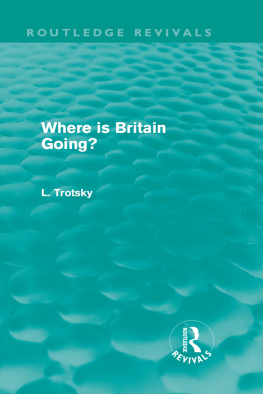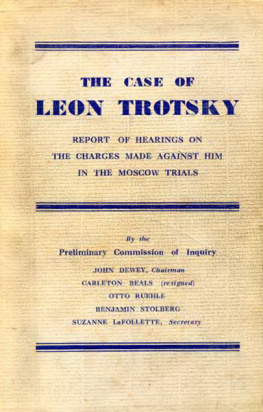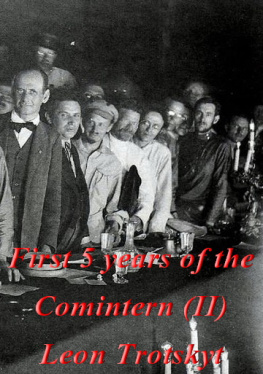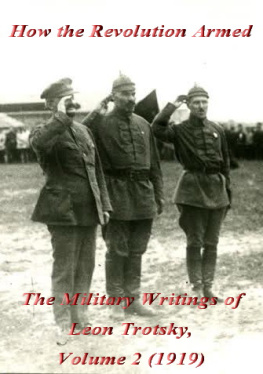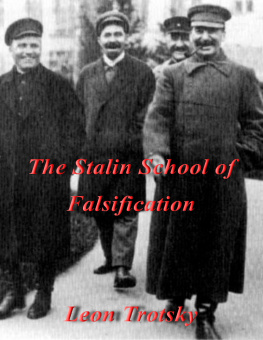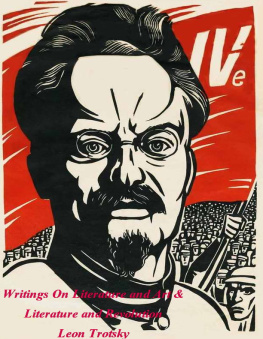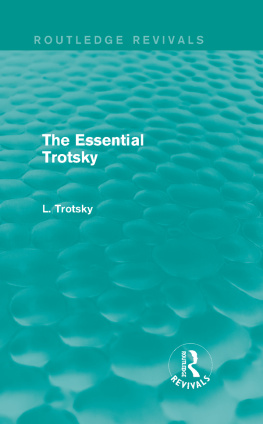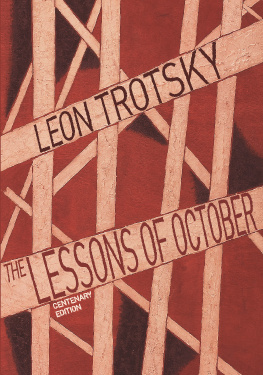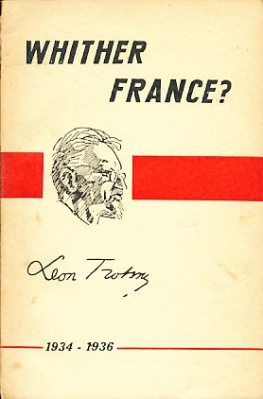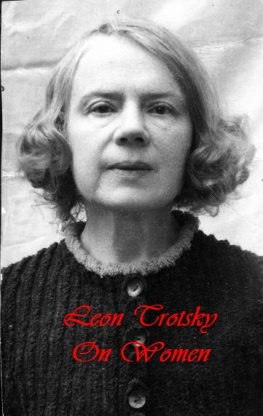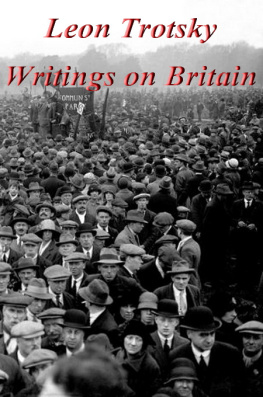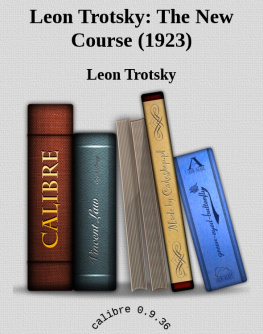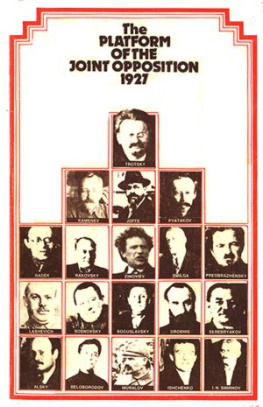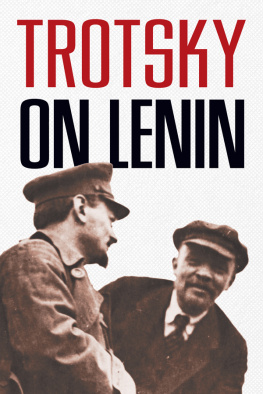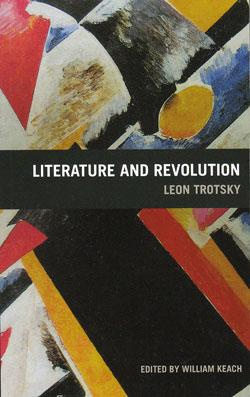Trotsky - Where Is Britain Going?
Here you can read online Trotsky - Where Is Britain Going? full text of the book (entire story) in english for free. Download pdf and epub, get meaning, cover and reviews about this ebook. City: London;Great Britain, year: 2012, publisher: Taylor & Francis (CAM);Routledge, genre: Politics. Description of the work, (preface) as well as reviews are available. Best literature library LitArk.com created for fans of good reading and offers a wide selection of genres:
Romance novel
Science fiction
Adventure
Detective
Science
History
Home and family
Prose
Art
Politics
Computer
Non-fiction
Religion
Business
Children
Humor
Choose a favorite category and find really read worthwhile books. Enjoy immersion in the world of imagination, feel the emotions of the characters or learn something new for yourself, make an fascinating discovery.
Where Is Britain Going?: summary, description and annotation
We offer to read an annotation, description, summary or preface (depends on what the author of the book "Where Is Britain Going?" wrote himself). If you haven't found the necessary information about the book — write in the comments, we will try to find it.
Where Is Britain Going? — read online for free the complete book (whole text) full work
Below is the text of the book, divided by pages. System saving the place of the last page read, allows you to conveniently read the book "Where Is Britain Going?" online for free, without having to search again every time where you left off. Put a bookmark, and you can go to the page where you finished reading at any time.
Font size:
Interval:
Bookmark:
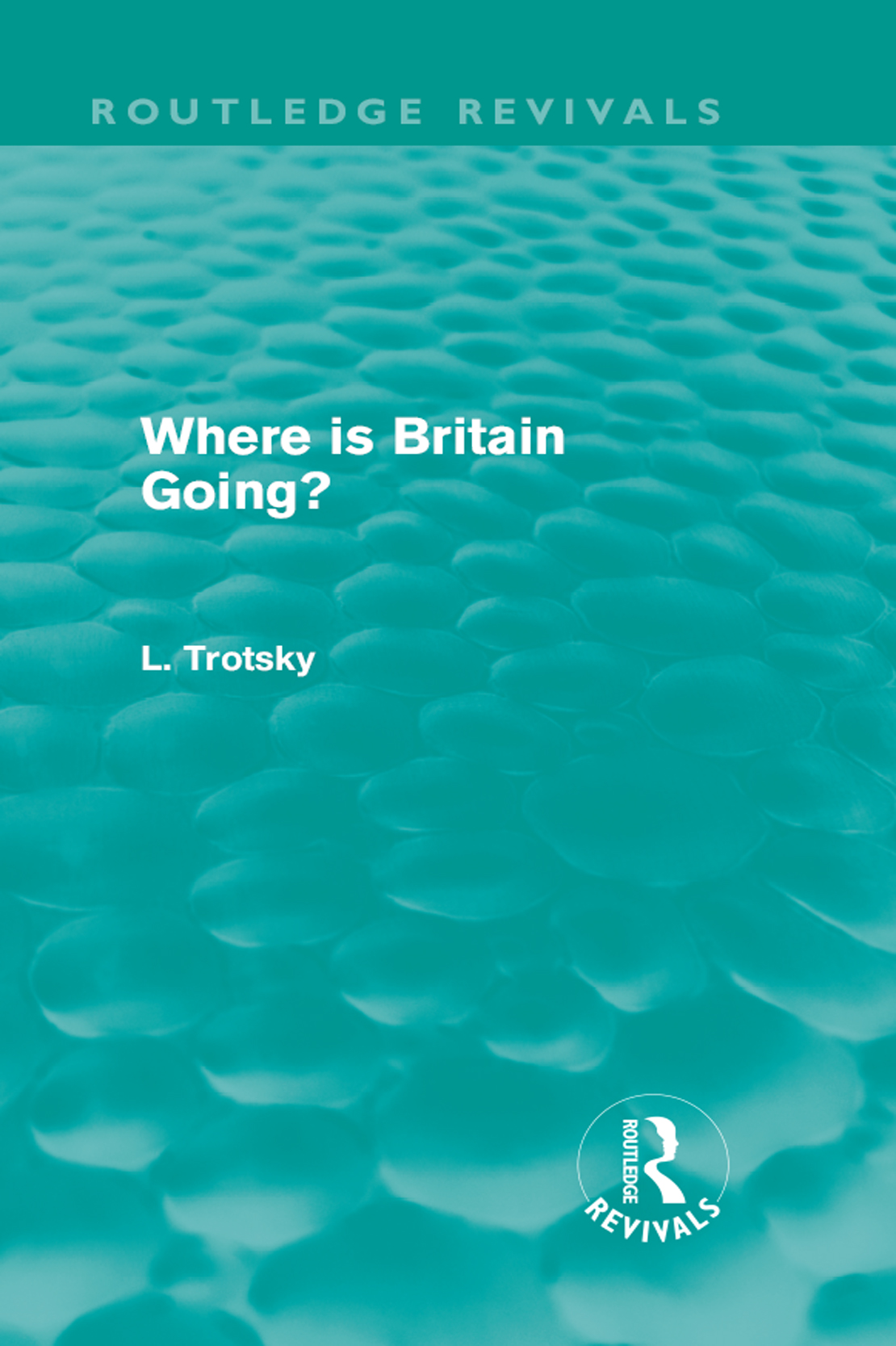
First Published in 1926, Where is Britain Going? focuses on the historical factors and circumstances which were to define Britain's development in the midst of social unrest at that time. The book considers the future of Britain in an age when the working classes were being driven into confrontation with the state under the impact of the world crisis of capitalism. Writing over eighty years ago, Trotsky concentrates on the decline of British imperialism in his analysis of the Bolshevik Revolution. In a brilliant polemic that exposes all the treachery of the Labour leaders in the year before the General strike, he recalls the revolutionary traditions of the working class and draws on the historical lessons of the English Civil War and Chartism. Rejecting the parliamentary road and stripping bare the pretensions of Fabian socialism, Where is Britain going? outlines perspectives of revolution which continue to retain their validity.

First published in 1926
by George Allen & Unwin Ltd
This edition first published in 2012 by Routledge
2 Park Square, Milton Park, Abingdon, Oxon, OX14 4RN
Simultaneously published in the USA and Canada
by Routledge
711 Third Avenue, New York, NY 10017
Routledge is an imprint of the Taylor & Francis Group, an informa business
1926 George Allen & Unwin Ltd
All rights reserved. No part of this book may be reprinted or reproduced or utilised in any form or by any electronic, mechanical, or other means, now known or hereafter invented, including photocopying and recording, or in any information storage or retrieval system, without permission in writing from the publishers.
Publisher's Note
The publisher has gone to great lengths to ensure the quality of this reprint but points out that some imperfections in the original copies may be apparent.
Disclaimer
The publisher has made every effort to trace copyright holders and welcomes correspondence from those they have been unable to contact.
ISBN 13: 978-0-415-62340-7 (hbk)
ISBN 13: 978-0-203-10288-6 (ebk)
GOING ?
BY
L TROTSKY
With an Introduction by
H. N. BRAILSFORD
LONDON : GEORGE ALLEN & UNWIN LTD.
RUSKIN HOUSE, 40 MUSEUM STREET, W.C. 1
Printed in Great Britain by
UNWIN BROTHERS, LIMITED, LONDON AND WOKING
First Published in 1926
(All rights reserved)
A T the close of the Communist trial the judge at the Old Bailey summoned seven of his prisoners to choose between a six months sentence and the opinions expressed in this book. They are, if we must read this summons in its literal meaning, prohibited opinions on which the law has put its ban. If this were really our case, then the thesis which Trotsky maintains in these pages is established already. For we should have to admit that even before violence had been attempted, the mere appearance in our politics of a tiny revolutionary party has sufficed to frighten the ruling class out of its respect for the liberty of opinion on which democracy is founded. It needs no energetic exercise of the imagination to predict from this episode what would happen if the challenge grew to a formidable threat.
But the battle for freedom is not yet lost. It is precisely those of us who differ from Trotsky's reading of our inevitable destiny who are bound in duty to welcome the appearance of this book. If it may come freely from the press, if it may be discussed, as it deserves to be, with equal freedom for assent or dissent, then, for the moment at least, the nightmare of this trial is dissipated. Of all parties in Great Britain, the Labour Party has the chief interest in demanding for this ruthless attack upon itself both liberty and attention. We can hold our faith in the democratic approach to Socialism as a reasoned conviction only if the opposite opinion may be argued in perfect liberty, and only then if it finds worthy and capable advocates. If the law forbids a man to draw from the study of history and the survey of contemporary politics the conclusion that force is the only adequate instrument for social change, in that moment our contrary opinion ceases to be a reasoned conviction and becomes an imposed dogma.
The opinion which Trotsky maintains has never been more brilliantly argued. Behind its wit and its logic there is the prestige of experience. The pamphleteer who tells us that if we mean to achieve Socialism we cannot escape civil war has himself conducted a civil war against terrific odds to a triumphant conclusion. It is obvious, moreover, that he has taken pains to equip himself for his task and has applied his versatile intellect to the study of our history and our contemporary life. He makes some mistakes, it is true, in his facts, but none of these really invalidate his argument.
His book is a slashing attack on our whole movement. We shall make a grave mistake if we allow its manner to blind us to the fact that he has a strong case to argue. He assails Left and Right with equal vehemence. Sometimes in his criticisms of persons he is arrogant and offensive; sometimes his wit is irresistible; sometimes (it seems to me) he assails things in our record and muddles in our thinking which deserve to be assailed. But the odds are that with these ruthless Russian methods he will produce in the minds of most English readers an effect which is far from his intention.
Trotsky is far too able a man not to realize that there are differences in the English and Russian national characters. He emphasizes again and again the lesson that history has made each of us what we are. Yet the more he displays his acquaintance with the external facts of our history, the less does he seem to understand us. His attitude to the religious beliefs of most of our readers is for me the test of his failure to understand usand this I may say calmly, since I am myself an Agnostic. No Russian that I ever met, even when he had been long in England, ever grasped the fact that English religion with its long tradition of open discussion, the democratic form of its free churches, its emphasis on conduct rather than ritual or belief, and its relative freedom from other worldliness, has literally nothing in common with the Eastern Church. I wonder, would Trotsky's conviction that Protestant religion is necessarily a bourgeois creed which no worker can honestly profess survive a visit to a dissenting chapel in a mining district? Has he ever read Bunyan, or glanced at the revolutionary history of Anti-Baptists and Fifth Monarchy men? What would he make of the queer disputes between the middle-class Free-thinker, Robert Owen (who hated class war), and the pioneers of English Trade Unionism, who clung with equal obstinacy to their Christianity and their belief in the class war?
One feels the same failure of a man from another world to understand us when Trotsky laughs at the idea that a Labour majority in Parliament will ever be allowed to do anything fundamental. Assuredly it will be a tremendous adventure ; certainly it will want will and courage. No sane man will deny the risks to which Trotsky points. But equally, I think, every man who realises how deeply the Parliamentary tradition and the instinct of obedience to the majority are graven on the English mind will admit that the adventure is worth attempting. Not only in Parliament, but in churches, Trade Unions, and even clubs, this respect for the majority has been inculcated on generations of Englishmen. What can a Russian know of that? What estimate can he make of the power of tradition in our older civilization? We should answer, in the last resort, that if he is right, if the propertied class will in the end defend its privileges by force, then we prefer to fight, as Cromwell fought, with the Parliament behind us, and the rights of a majority on our side.
Next pageFont size:
Interval:
Bookmark:
Similar books «Where Is Britain Going?»
Look at similar books to Where Is Britain Going?. We have selected literature similar in name and meaning in the hope of providing readers with more options to find new, interesting, not yet read works.
Discussion, reviews of the book Where Is Britain Going? and just readers' own opinions. Leave your comments, write what you think about the work, its meaning or the main characters. Specify what exactly you liked and what you didn't like, and why you think so.

